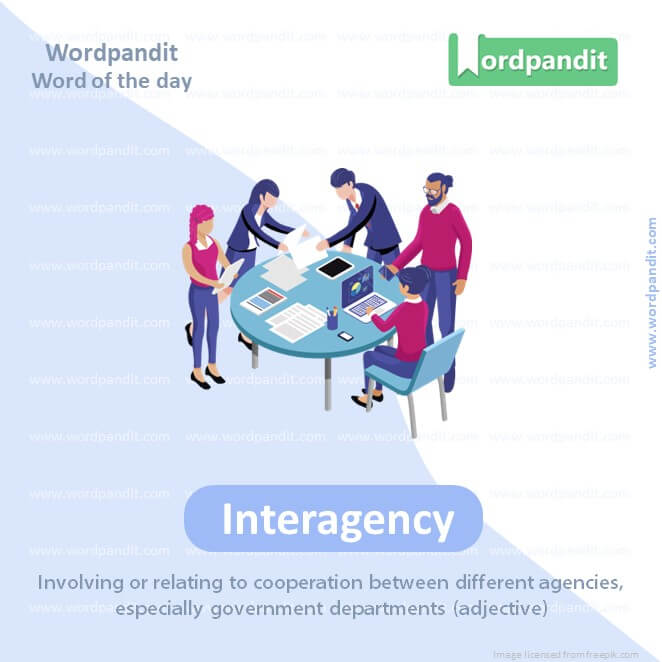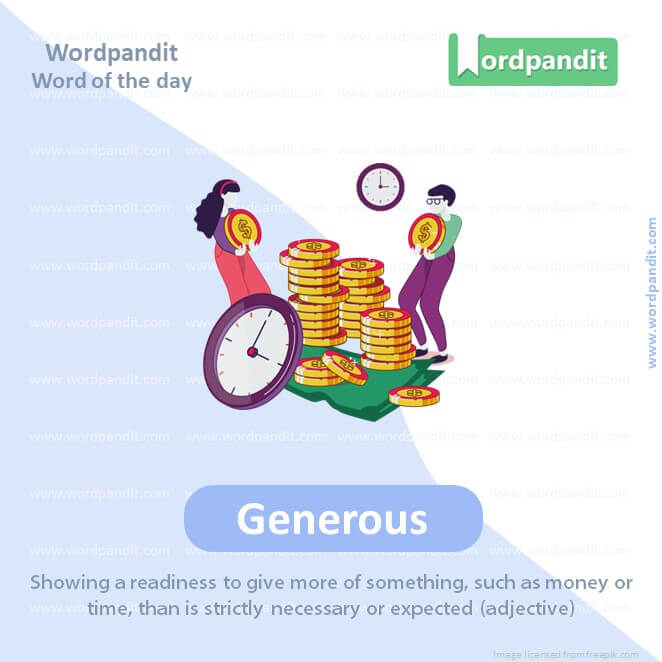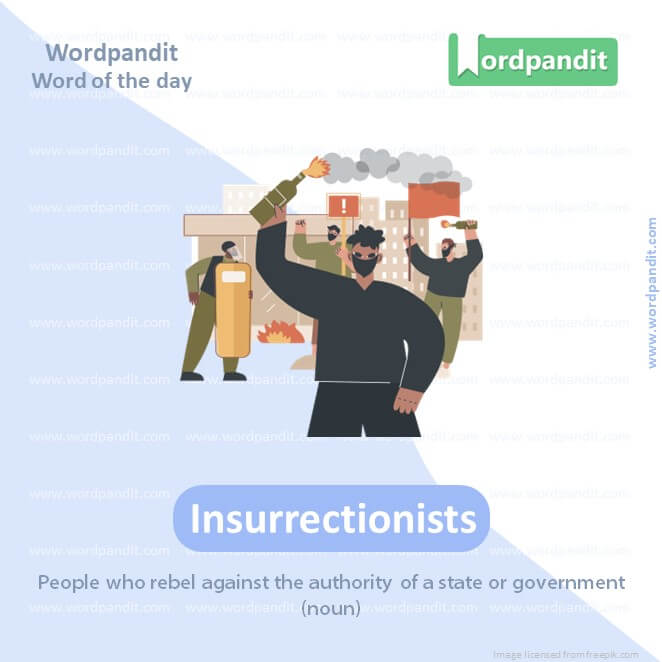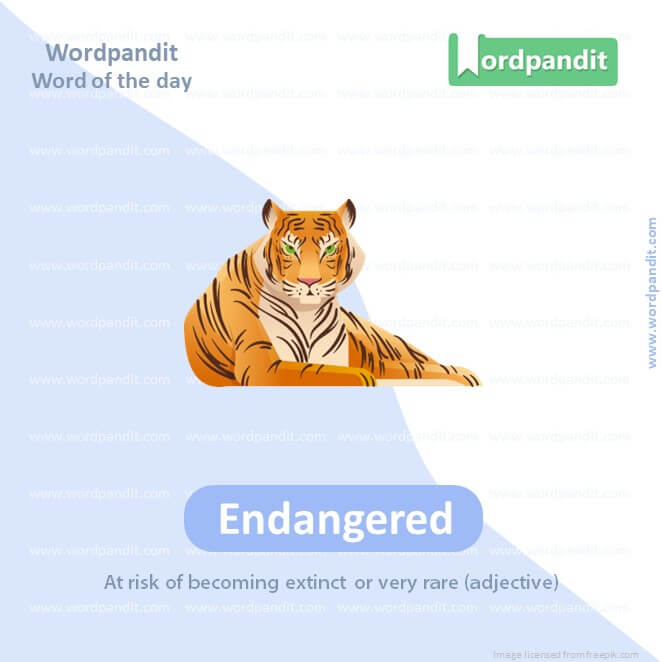Daily Vocabulary from International Newspapers and Publications
Expand Your Vocabulary with Wordpandit’s Global Vocabulary Hub
At Wordpandit, we are committed to helping you develop a truly global vocabulary by drawing from some of the most respected international publications. This section is designed to keep you ahead of the curve by introducing you to words that define global conversations and trends.
The Power of Global Sources
To help you think and communicate on a global scale, we curate vocabulary from renowned international sources, such as:
- The New York Times
- The Washington Post
- BBC
- The Guardian
- The Economist
- Scientific American
- Psychology Today
- And many more...
Stay Global, Stay Competitive
Our daily updates from international publications ensure you are consistently exposed to new words that reflect global news and developments, making sure your vocabulary is not only current but also globally relevant.
Enhance Your Global Perspective
Whether you’re preparing for international exams, aiming to excel in global business communication, or want to enhance your language skills for personal growth, Wordpandit offers the resources you need to thrive in a global context.
Effective Learning, Global Reach
Our learning methodology combines global examples, memory aids, and interactive activities, allowing you to internalize new words effectively and apply them in real-world scenarios.
Begin Your Global Vocabulary Journey Now!
Why Choose Wordpandit?
Practical Learning: Focus on words you'll actually encounter in real-world reading, enhancing your comprehension and communication skills.
Diverse Content: From current affairs to scientific breakthroughs, our varied sources expose you to vocabulary across multiple domains.
Effortless Integration: Make Wordpandit a part of your daily routine. Just a few minutes each day can significantly boost your lexicon over time.
Your Path to Vocabulary Mastery
- Visit our Daily Vocabulary section regularly
- Explore new words and their usage in context
- Practice incorporating these words into your own writing and speech
- Track your progress as your vocabulary expands
Start Your Journey Today
Embark on your vocabulary enhancement journey with Wordpandit. By consistently engaging with our daily posts, you'll build a robust vocabulary that serves you well in academic, professional, and personal contexts.
Remember, a word a day keeps linguistic limitations at bay. Make Wordpandit your daily companion in the quest for vocabulary excellence!
WORD-1: Straddling
Context:
"With a general election now on the horizon, MPs are starting to talk about the prospect of strikes straddling two administrations." - Guardian
Explanatory Paragraph:
“Straddling” is used when something spans or exists across two sides, phases, or points in time. In the context of political or administrative transitions, like in the sentence above, it means that the strikes could begin under one government and continue into the tenure of the next, effectively overlapping both. The term conveys continuity over a divide, whether physical, conceptual, or temporal.
Meaning: To extend across or exist on both sides of something; to be positioned between two differing elements. (Verb)
Pronunciation: STRAD-ling
Difficulty Level: ⭐⭐ Moderate
Etymology: Derived from the word "straddle," which dates back to the late 17th century, possibly imitative of the posture taken when sitting with legs apart, from Middle Dutch *stradelen* (to stand astride).
Prashant Sir's Notes:
Think of “straddling” as sitting on a fence—partly on one side, partly on the other. It's useful in describing situations involving overlap, dual positions, or transitions, especially in political, business, and time-related contexts.
Synonyms & Antonyms:
Synonyms: span, bridge, overlap, extend across, bestride
Antonyms: divide, separate, split, disconnect
Usage Examples:
- The highway straddles the border between two states.
- Her research straddles the fields of neuroscience and artificial intelligence.
- He found himself straddling the line between loyalty to his friends and his own values.
- The fiscal year straddles both calendar years, beginning in October and ending in September.
Cultural Reference:
"I have straddled the fence long enough... it's time to take a stand." — A common trope in political dramas where a character must choose a side.
Think About It:
In what areas of life do people often find themselves straddling two roles or identities? What are the challenges of such positions?
Quick Activity:
Write three sentences using “straddling” in different contexts: physical space, time, and ideas.
Memory Tip:
Imagine sitting on a horse with one leg on each side — you’re literally “straddling” it. This visual helps remember that the word means to extend across or sit astride something.
Real-World Application:
“Straddling” is often used in political analysis, business strategy, and international relations to describe situations that bridge different domains, time periods, or jurisdictions — like policies that straddle both public and private sectors.
WORD-2: Interagency
Context:
"The District also approved more than $11 million to support the office of deputy mayor for public safety and justice, which will 'develop and lead interagency public safety initiatives that improve the quality of life in the District.'" - Washington Post
Explanatory Paragraph:
The word “interagency” refers to actions or initiatives that involve cooperation or coordination between two or more government agencies. In the sentence above, it suggests that multiple departments or governmental bodies will work together on public safety efforts. These types of collaborations are crucial when tackling complex problems that span jurisdictions or specialties, such as crime prevention, disaster response, or urban development.
Meaning: Involving or occurring between two or more agencies, especially government ones. (Adjective)
Pronunciation: in-ter-AY-juhn-see
Difficulty Level: ⭐⭐ Moderate
Etymology: Formed by combining "inter-" meaning "between" and "agency," dating back to mid-20th century usage in governmental and military planning contexts.
Prashant Sir's Notes:
This is a compound word: “inter” (between) + “agency” (a government or organizational body). It's especially useful in discussions about governance, cooperation, and administrative strategy. Recognizing such words helps decode bureaucratic and policy-related language.
Synonyms & Antonyms:
Synonyms: cross-agency, multi-agency, collaborative, joint
Antonyms: intra-agency, independent, isolated
Usage Examples:
- The task force was created as an interagency effort to combat cybercrime.
- Interagency collaboration is essential in responding effectively to natural disasters.
- The interagency agreement outlines how departments will share data and resources.
- She coordinates interagency meetings to ensure all departments are aligned on goals.
Cultural Reference:
"Interagency cooperation was vital during the 9/11 response." - A key lesson highlighted in the 9/11 Commission Report, which emphasized the importance of coordination across federal departments.
Think About It:
Why do you think interagency coordination often becomes difficult in large bureaucracies? What strategies could improve it?
Quick Activity:
List three real-world problems (e.g., climate change, public health crises) that would benefit from interagency cooperation. Explain why.
Memory Tip:
Break it down: “Inter” means between, and “agency” is an organization. So, interagency = between agencies. Picture a big roundtable with multiple departments working together!
Real-World Application:
“Interagency” is frequently used in government, law enforcement, disaster management, and international relations. Understanding this word helps in reading policy documents, news articles, or organizational plans that deal with cooperation and strategy.
WORD-3: Generous
Context:
"Meanwhile shadow health secretary Wes Streeting is giving little sign that Labour would be more generous and must know that if he does, junior doctors will only be encouraged to wait this government out, with painful consequences for patients." - Guardian
Explanatory Paragraph:
The word “generous” typically refers to someone who gives more than is expected, whether it’s money, time, kindness, or opportunities. In the context above, it is being used in a political and economic sense—suggesting that the Labour party might (or might not) offer more favorable terms (such as higher pay or better conditions) to junior doctors. The idea is that a more generous stance from Labour could influence the doctors' decisions during a strike.
Meaning: Showing a readiness to give more of something than is strictly necessary or expected. (Adjective)
Pronunciation: JEN-uh-ruhs
Difficulty Level: ⭐ Basic
Etymology: From Latin *generosus* meaning “of noble birth,” later shifting to mean “noble in spirit or action.”
Prashant Sir's Notes:
While “generous” is often linked with giving money, its usage is much broader. It can refer to kindness, time, attitude, or even portions of food. Pay attention to the context—it’s an emotionally loaded word, and can be used both positively and strategically (as in politics or negotiations).
Synonyms & Antonyms:
Synonyms: charitable, giving, liberal, openhanded, kind
Antonyms: stingy, miserly, selfish, ungenerous, tightfisted
Usage Examples:
- She made a generous donation to the children's hospital.
- He offered a generous portion of his dessert to his friend.
- Her generous spirit made her popular among colleagues.
- The company was surprisingly generous in its severance packages.
Cultural Reference:
"No one has ever become poor by giving." — Anne Frank. A famous quote reflecting the spirit of generosity and how giving enriches rather than diminishes us.
Think About It:
Is generosity always a virtue, or can it sometimes lead to unintended consequences—such as dependency or manipulation?
Quick Activity:
Write two sentences using “generous” — one in a financial context and one in a personal or emotional context.
Memory Tip:
Think of “Genie” from Aladdin—he’s magical, kind, and always giving. "Genie" = “Generous”! That mental image helps recall the meaning.
Real-World Application:
“Generous” is a useful word in everyday conversations, workplace discussions, and social descriptions. Whether praising someone’s kind act, evaluating policies, or giving feedback, this word brings warmth and value to communication.
WORD-4: Insurrection
Context:
"A Post-University of Maryland poll published this week shows a sizable share of Americans accept lies about the 2020 election and the insurrection that followed on Jan. 6, 2021." - Washington Post
Explanatory Paragraph:
The term “insurrection” refers to a violent uprising or rebellion against an authority, typically a government. In the context above, it is used to describe the events of January 6, 2021, when a mob stormed the U.S. Capitol in an attempt to overturn the 2020 presidential election results. The word carries serious legal and political weight, often implying an organized attempt to disrupt or overthrow the established order.
Meaning: A violent uprising or revolt against an authority or government. (Noun)
Pronunciation: in-suh-REK-shuhn
Difficulty Level: ⭐⭐⭐ Intermediate
Etymology: From Latin *insurgere* meaning “to rise up,” with the prefix *in-* (into) and *surgere* (to rise); it entered English via Late Latin *insurrectio* in the 15th century.
Prashant Sir's Notes:
Be careful to distinguish between "protest" and "insurrection." While both involve opposition to authority, insurrection is far more extreme and implies violence and a direct challenge to power. It often borders on or crosses into criminal rebellion.
Synonyms & Antonyms:
Synonyms: rebellion, uprising, revolt, mutiny, coup
Antonyms: peace, obedience, submission, loyalty, compliance
Usage Examples:
- The government responded quickly to suppress the insurrection in the capital.
- Historians still debate whether the movement was a protest or a full-scale insurrection.
- Charges of inciting an insurrection were brought against the ringleaders.
- The film depicted a fictional insurrection against a totalitarian regime.
Cultural Reference:
"The storming of the U.S. Capitol on January 6, 2021, has widely been referred to as an insurrection by politicians, media outlets, and legal scholars." - A defining event in recent American political history.
Think About It:
At what point does civil disobedience become insurrection? How do societies balance the right to protest with the need for order?
Quick Activity:
Identify three historical or fictional examples of an insurrection. Write a sentence using the word in each context.
Memory Tip:
Think of “insurrection” as “IN SURGE” — a surge of people rushing *in* to challenge authority. It captures the essence of an uprising.
Real-World Application:
Understanding the term “insurrection” is crucial in interpreting news, historical texts, and political commentary. It helps distinguish between lawful protest and attempts to destabilize governance through force.
WORD-5: Endangered
Context:
"His reckless words endangered my family and everyone at the Capitol that day.” - Washington Post
Explanatory Paragraph:
The word “endangered” refers to something or someone being put at risk, often of harm, injury, or extinction. In the context of the sentence, it means that the speaker believes someone's irresponsible words put people—including their family—in physical danger during a volatile situation. The term can be applied both to living beings and abstract entities (like democracy or trust), depending on the context.
Meaning: Exposed to danger or risk; in a situation where harm is possible. (Verb – past tense of “endanger”; also used as an adjective)
Pronunciation: en-DAYN-jerd
Difficulty Level: ⭐ Basic
Etymology: From the prefix *en-* (to cause) + *danger*, dating back to Middle English. Literally meaning "to put in danger."
Prashant Sir's Notes:
While “endangered” is commonly seen in phrases like “endangered species,” remember that it’s a versatile word that can be applied to people, systems, relationships, and even ideas. The core idea is *being at serious risk*.
Synonyms & Antonyms:
Synonyms: threatened, at risk, unsafe, vulnerable, imperiled
Antonyms: protected, safe, secure, shielded
Usage Examples:
- Driving under the influence endangered the lives of everyone on the road.
- The oil spill endangered local wildlife and marine habitats.
- By leaking sensitive information, the whistleblower may have endangered national security.
- Many languages around the world are now considered endangered due to globalization.
Cultural Reference:
“Endangered species” is a term officially used by organizations like the IUCN and WWF to classify animals at serious risk of extinction, such as tigers, rhinos, and orangutans.
Think About It:
What kinds of speech or actions, though legal, could still endanger public safety or social harmony? Where should the line be drawn?
Quick Activity:
List three things (a species, a group of people, and an idea) that are endangered in today’s world and explain why.
Memory Tip:
Break it down: “en” (to put in) + “danger” = endangered. It literally means “put into danger.” Imagine a flashing red warning sign around someone or something—that’s the mental image!
Real-World Application:
“Endangered” is widely used in environmental, legal, political, and social discussions. Knowing this word helps in understanding debates about conservation, civil safety, and ethical responsibility.


















